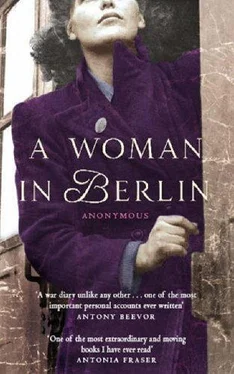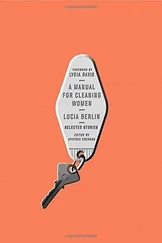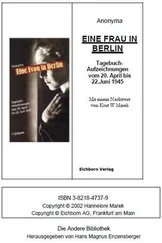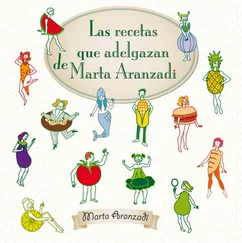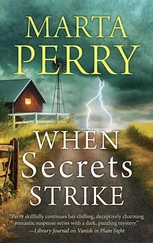I rush over with the widow. The enemy is taking a break, and things are fairly quiet, which explains the sudden mass of people milling about streets normally deserted in the middle of the day. Two women pass by pulling a child’s toy wagon with a whole barrel on top that smells of sauerkraut. Young and very old alike run like mad in the direction of the barracks. The widow and I have grabbed all the buckets we could find, two for each of us. The way is strewn with trampled potatoes and rotting carrots – you just have to follow them and you can’t go wrong. But right by the stone steps is a patch of blood, I shrink back… but the widow just laughs. ‘That’s marmalade!’ And that’s exactly what it is, too – people are rolling it out by the barrel.
We push through the crowd in the corridor, stumble down the slippery steps, land in a stinky pile of rotting potatoes. By the light of the narrow skylights we dig around in the mush with our hands and shoes, picking out whatever we can use. We leave the carrots and muddy swedes and fill our buckets with potatoes. We find a half-filled sack, and without asking whose it is we grab it and carry it up the stairs, down the street, into our building and up to the first floor.
More rattling and booming. Nobody cares – they’re all gripped by plunder fever. We turn round and run right back, this time returning with buckets full of briquettes. Mobs of people everywhere, running and snatching.
Now they’ve begun to loot the abandoned shops as well. A white-haired man – ‘gentleman’ would be a better description, is hauling a drawer full of boxes of soap powder. The drawer is labelled ‘Rice’.
Up to the first floor. We sit around on the living-room couch. Our arms are stiff, our legs shaky. What windowpanes are still left are quivering slightly. A gentle warmth is wafting through the broken windows – that and the smell of fire. Now and then we hear a voo-oommm! Then a prolonged echo, from the heavy anti-aircraft guns. After that comes a pinng! – a short blow right to the eardrum – heavy artillery. And then, far away, an occasional knackvoom-knackvoom, very fast, accompanied by howling and barking. I have no idea what it is. The widow claims they’re katyusha rockets, the so-called Stalin Organs. Incidentally up to now the Russians have been using individual bombs rather than a carpet.
In the end the two of us go off to see whether there’s any pudding powder left at the corner store that was hit yesterday. It turns out there are still a few customers, and yes, they’re still selling. There’s a price printed on the powder – 38 pfennigs, I think. The person selling, who also owns the store and lives right there, insisted on giving every customer exact change, so he kept running up and down the queue asking who had small coins and could help him. And that while under fire! Only here. We’ll be counting our change right into the grave.
Just for fun we peeked round the corner, to see what was up at the butcher’s, since I still hadn’t used up my ration. There, too, they were selling, with more supply than demand – at most a dozen people were in the store, so we were able to get some good pieces, boneless pork, fairly weighed.
As we walked out of the store a truck drove by, with German troops, red tabs, meaning anti-aircraft. They were headed away from us, toward the centre of town. They sat there mute, staring off into the distance. A woman called out to them, Are you leaving?’ No one answered her. We looked at each other and shrugged. The woman said, ‘They’re just poor souls themselves.’
These days I keep noticing how my feelings towards men – and the feelings of all the other women – are changing. We feel sorry for them; they seem so miserable and powerless. The weaker sex. Deep down we women are experiencing a kind of collective disappointment. The Nazi world – ruled by men, glorifying the strong man – is beginning to crumble, and with it the myth of ‘Man’. In earlier wars men could claim that the privilege of killing and being killed for the fatherland was theirs and theirs alone. Today, we women, too, have a share. That has transformed us, emboldened us. Among the many defeats at the end of this war is the defeat of the male sex.
Later in the basement, intelligent conversations over supper. Cosy still-lifes – in one square metre per household. Here tea with bread and butter, there mashed potatoes. Stinchen with the Hamburg ‘s’ wields her knife and fork flawlessly as she pokes at her pickle. Her wounded head has been neatly bandaged. The bookselling wife asks: ‘May I serve you some?’
‘Yes, please, if you’d be so kind,’ answers Curtainman Schmidt, softly.
A towel is spread over the canary’s cage. The deserter comes and announces that the Russians are scouting out the cinema. Our corner is currently under fire from small guns. The ex-soldier tells us we can’t have anyone wearing a uniform in the basement; otherwise under martial law we’ll all be subject to execution.
Palaver about the notices in the Armoured Bear. Two armies really do seem to be heading to relieve Berlin, Schörner from the south and some other one from the north. Teuenbrietzen, Oranienburg and Bernau are said to have been liberated.
And us? Very mixed feelings, and a sense of fright. ‘So now they’ll be back and forth and we’re caught right in the middle. Are we supposed to stay here for months? We’re lost one way or the other. If things don’t work out for Ivan, then the Americans will come from the air. And God have mercy if they start in with carpet-bombs. We’ll be buried alive in this basement.’
A new announcement from the street: the Volkssturm has retreated, Ivan is pushing right towards us. German artillery has pulled up on our corner; the explosions are booming through the basement. Meanwhile six women are sitting round a little table, the widow is reading the distiller’s wife’s cards. She’s very good at it, too: ‘In the short run you will experience a disappointment in connection with your husband.’ (He’s still holding his post in the distillery – together with the redheaded Elvira.)
I want to go to sleep right away. I’m looking forward to it. The day’s been packed to the brim. The net result: I’m healthy, bold and bright; for the moment my fear is mostly gone. My brain is full of vivid images of greed and rage. Stiff back, tired feet, broken thumbnail, a cut lip that’s still smarting. So the saying’s true after all: ‘What doesn’t kill you makes you stronger.’
One more thing. An image from the street: a man pushing a wheelbarrow with a dead woman on top, stiff as a board. Loose grey strands of hair fluttering, a blue kitchen apron. Her withered legs in grey stockings sticking out the end of the wheelbarrow. Hardly anyone gave her a second glance. Just like when they used to ignore the rubbish being hauled away.
FRIDAY, 27 APRIL 1945
DAY OF CATASTROPHE, WILD TURMOIL – RECORDED ON SATURDAY MORNING
It began with silence. The night was far too quiet. Around twelve o’clock Fräulein Behn reported that the enemy had reached the gardens and that the German line of defence was right outside our door.
It took a long time for me to fall asleep; I was going over Russian phrases in my head, practising the ones I thought I’d soon have a chance to use. Today I briefly mentioned to the other cave dwellers that I speak a little Russian, a fact I’d been keeping to myself. I explained that I’d been to European Russia when I was younger, one of the dozen or so countries I visited on my travels.
My Russian is very basic, very utilitarian, picked up along the way. Still, I know how to count and to say what day it is and I can read the Cyrillic alphabet. I’m sure it will come back quickly now that practice is near at hand. I’ve always had a knack for languages. Finally, counting away in Russian, I fell asleep.
Читать дальше
